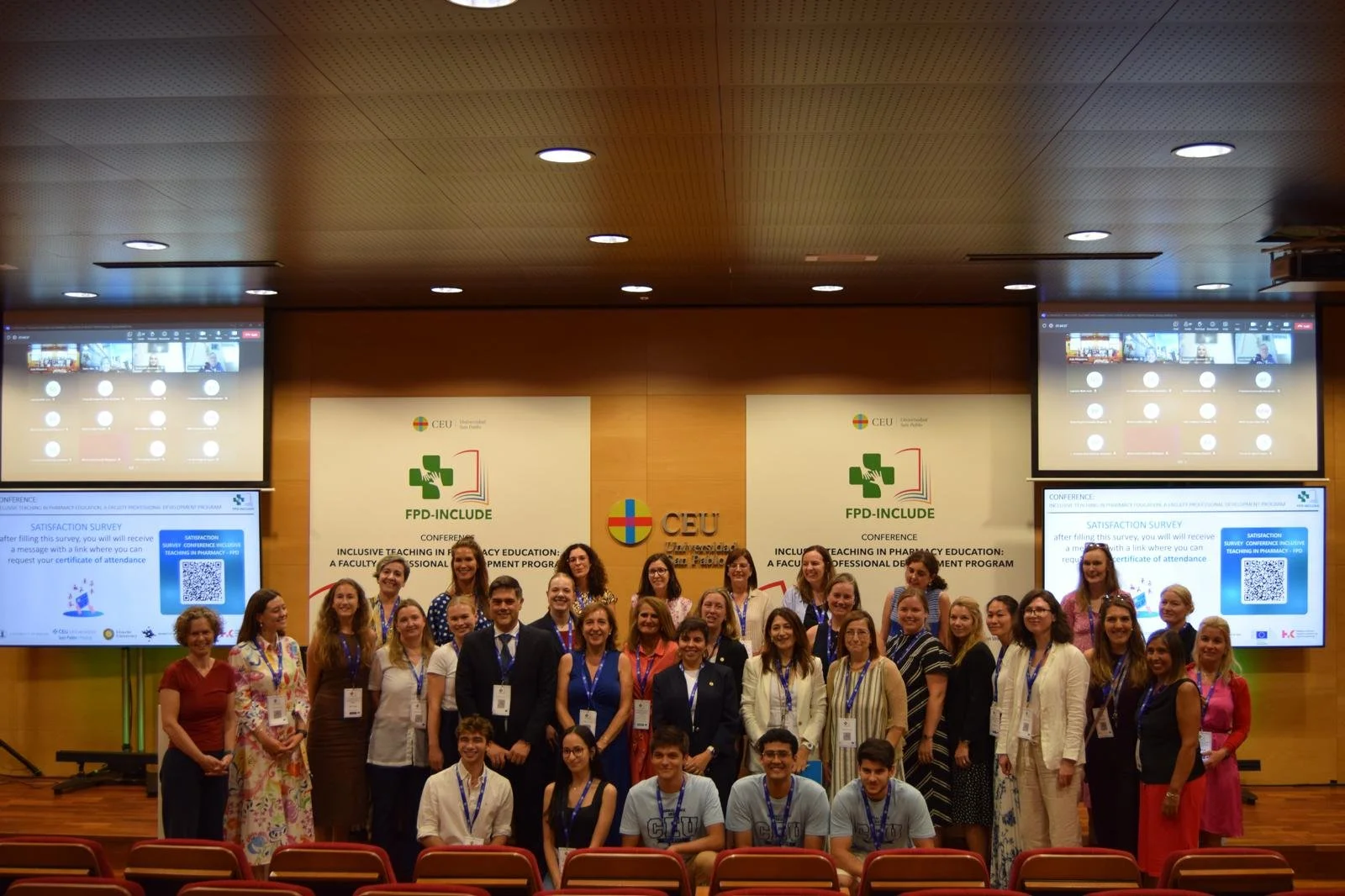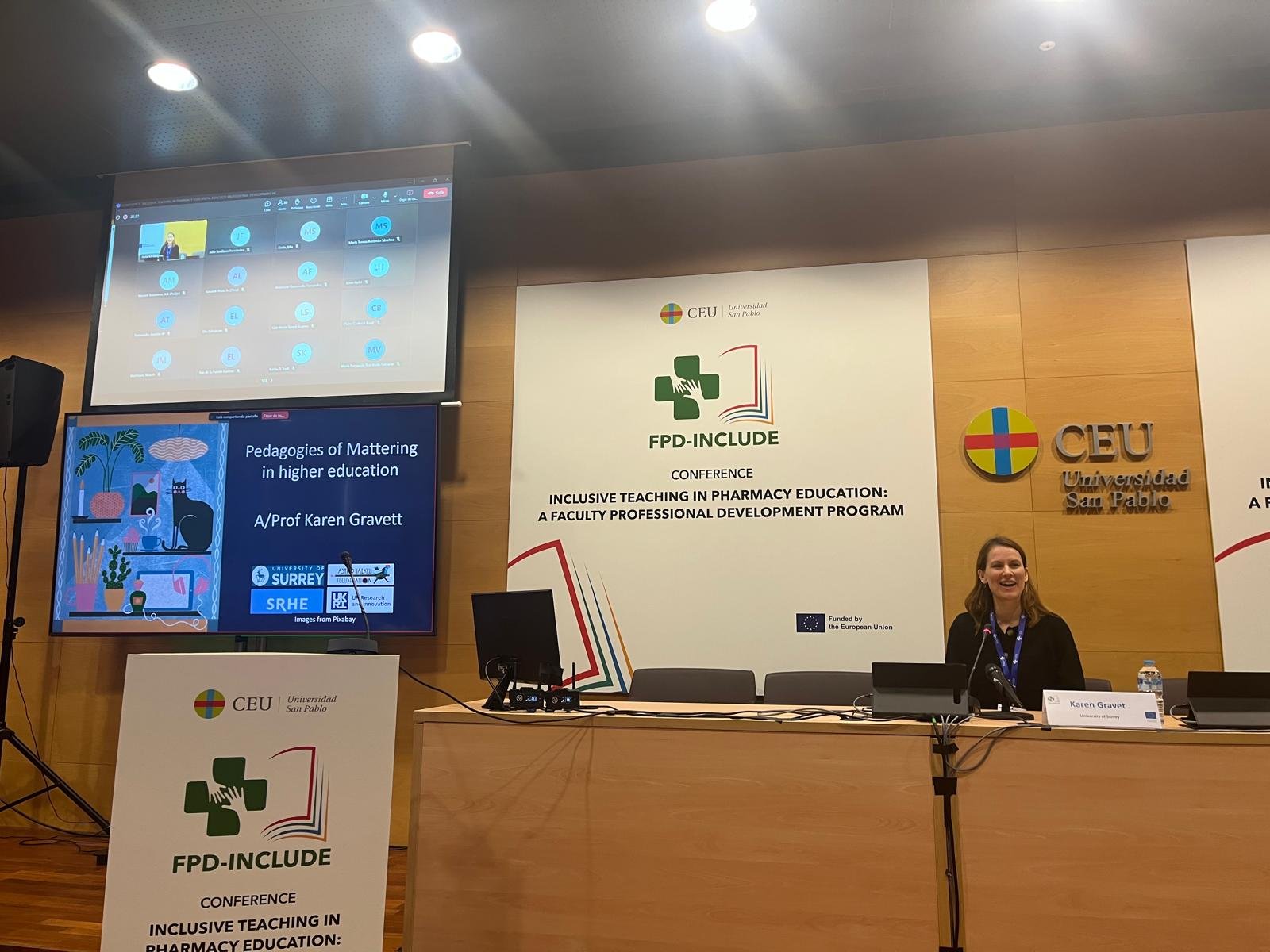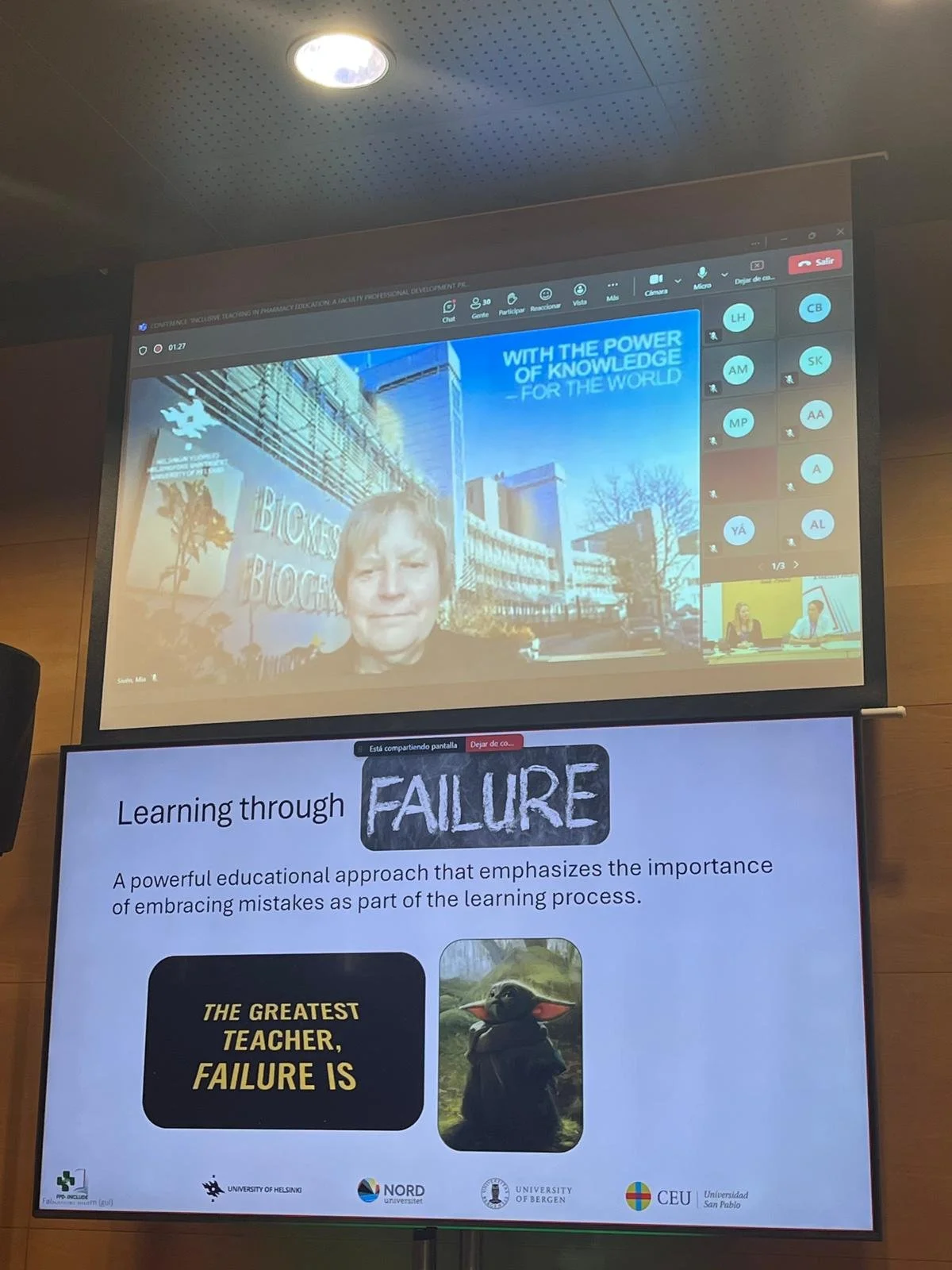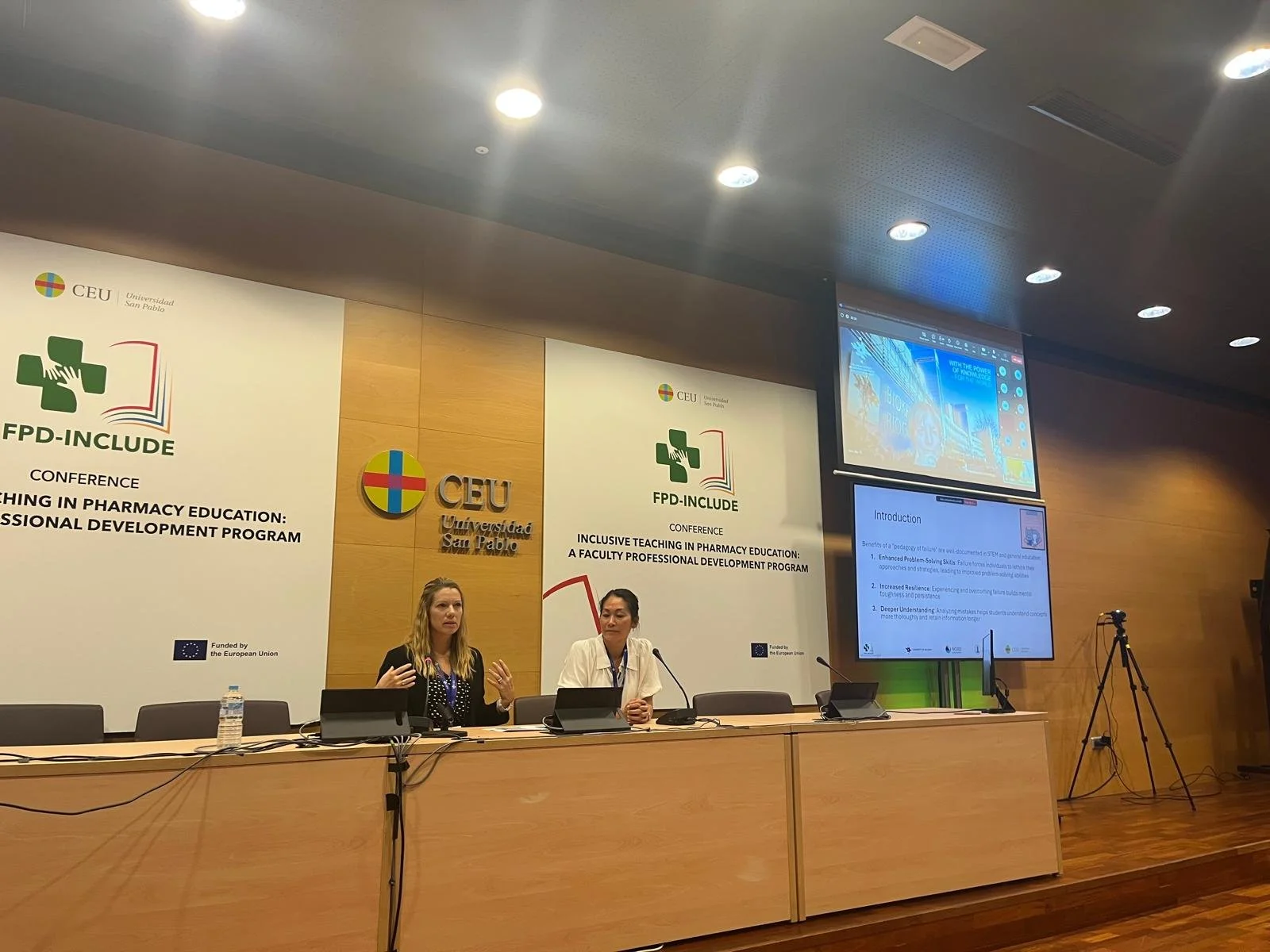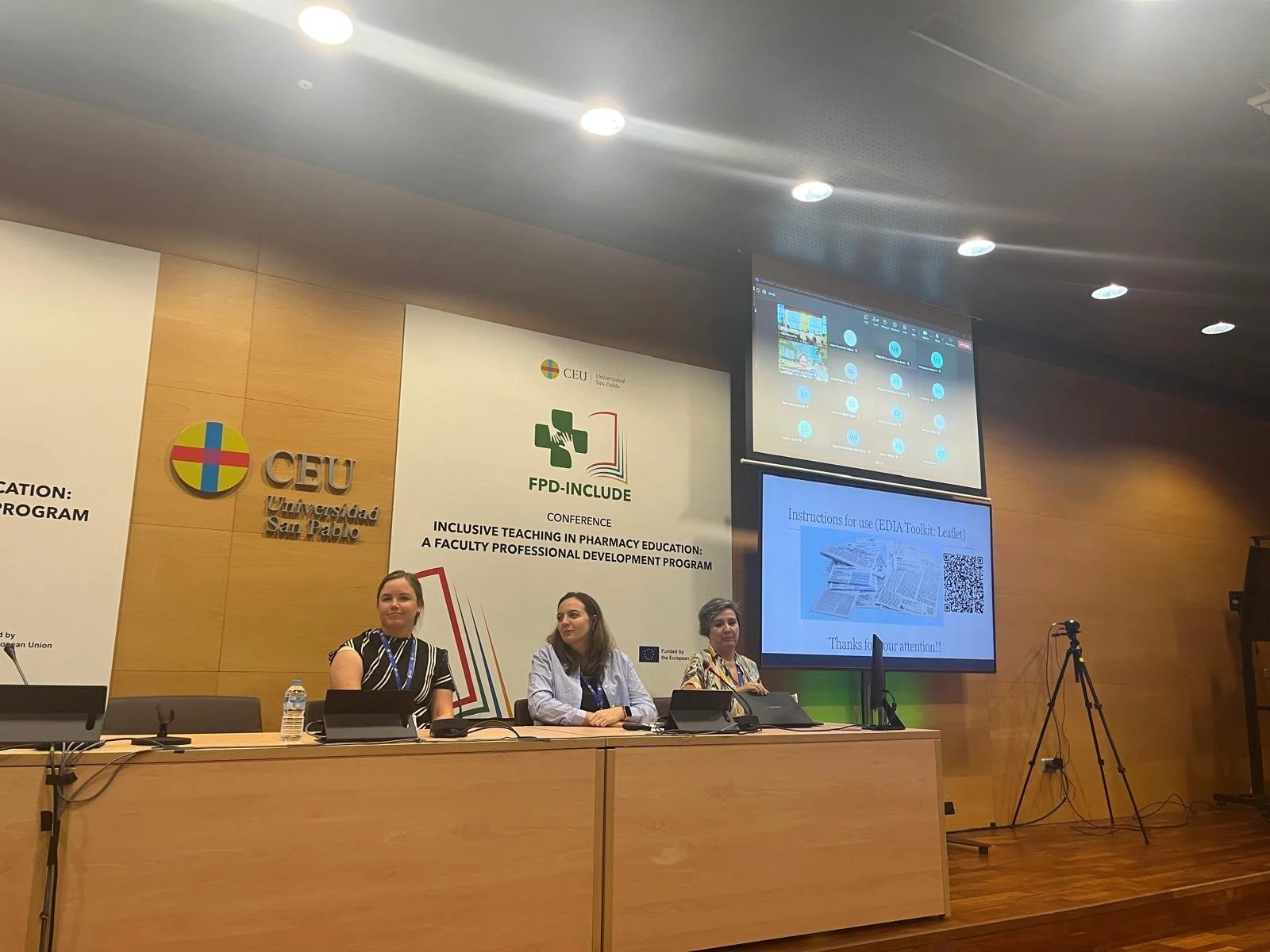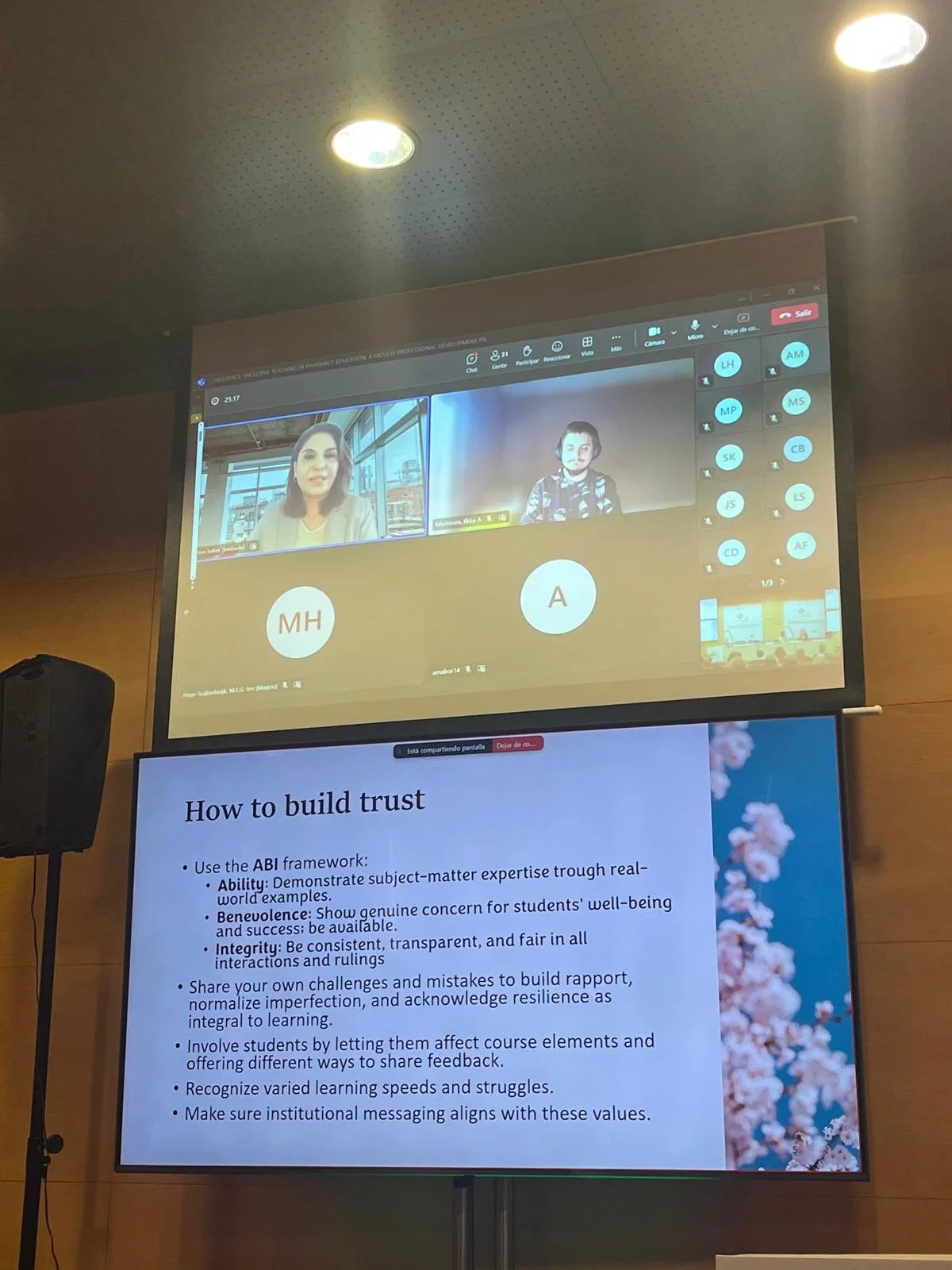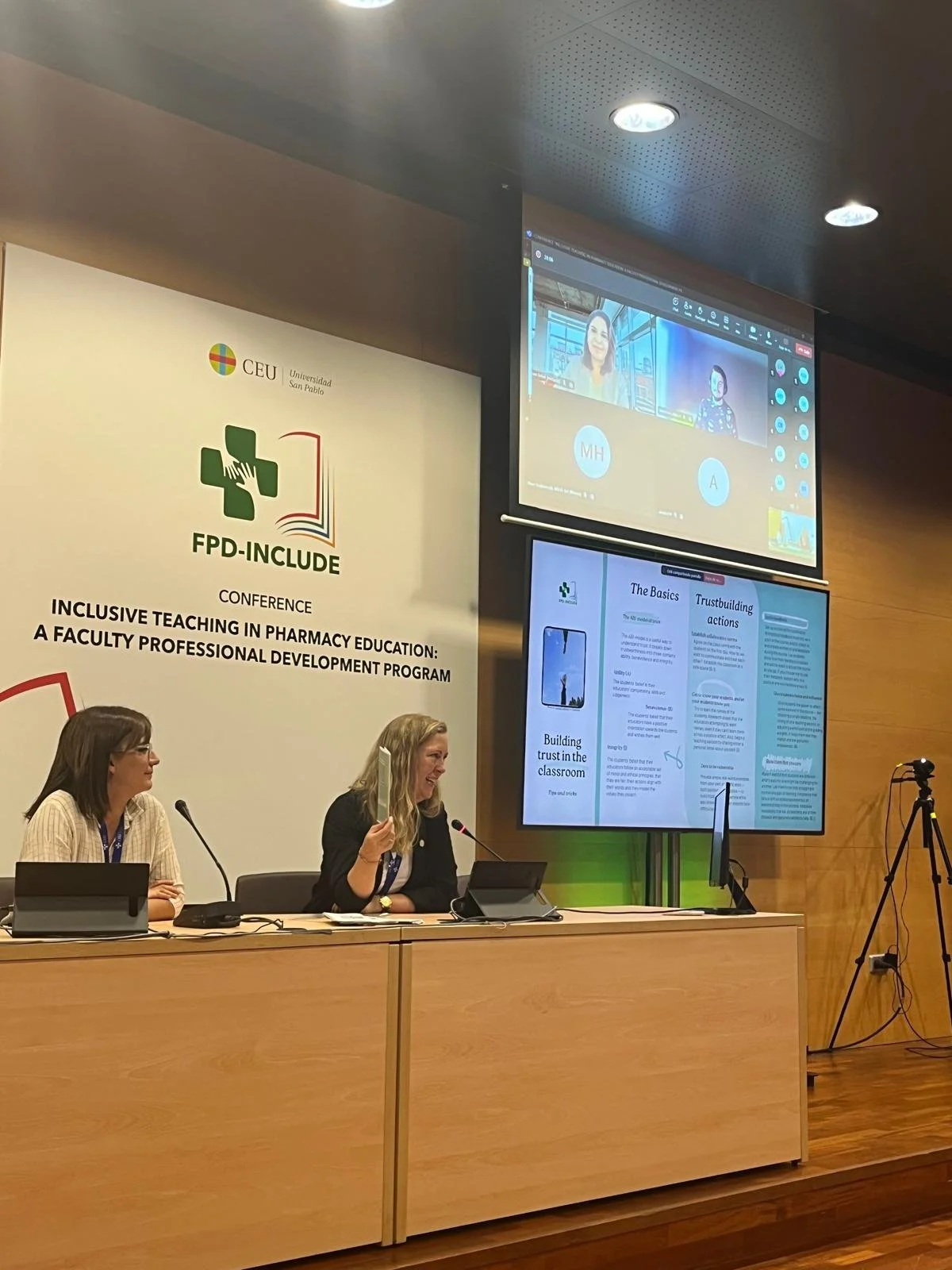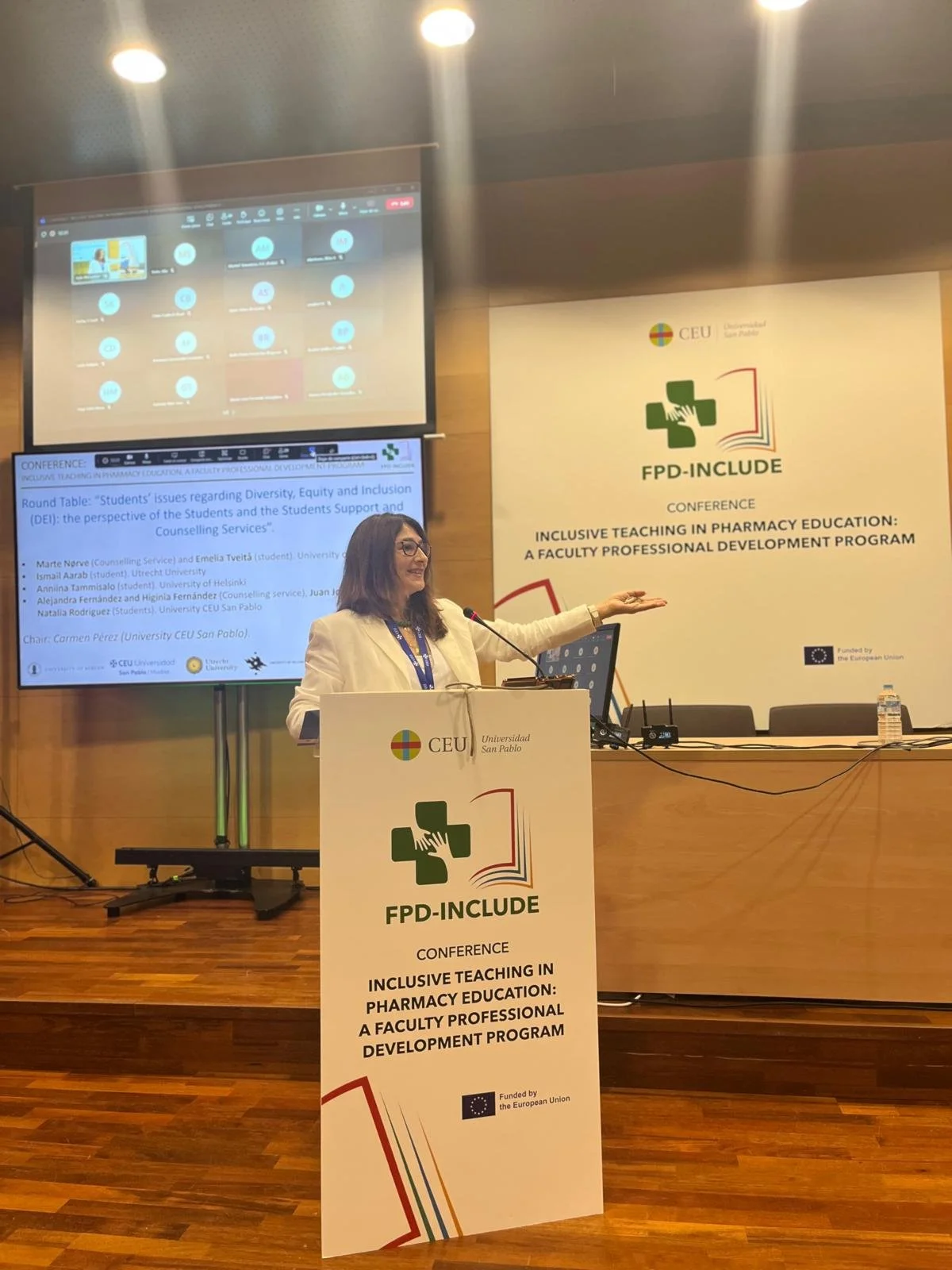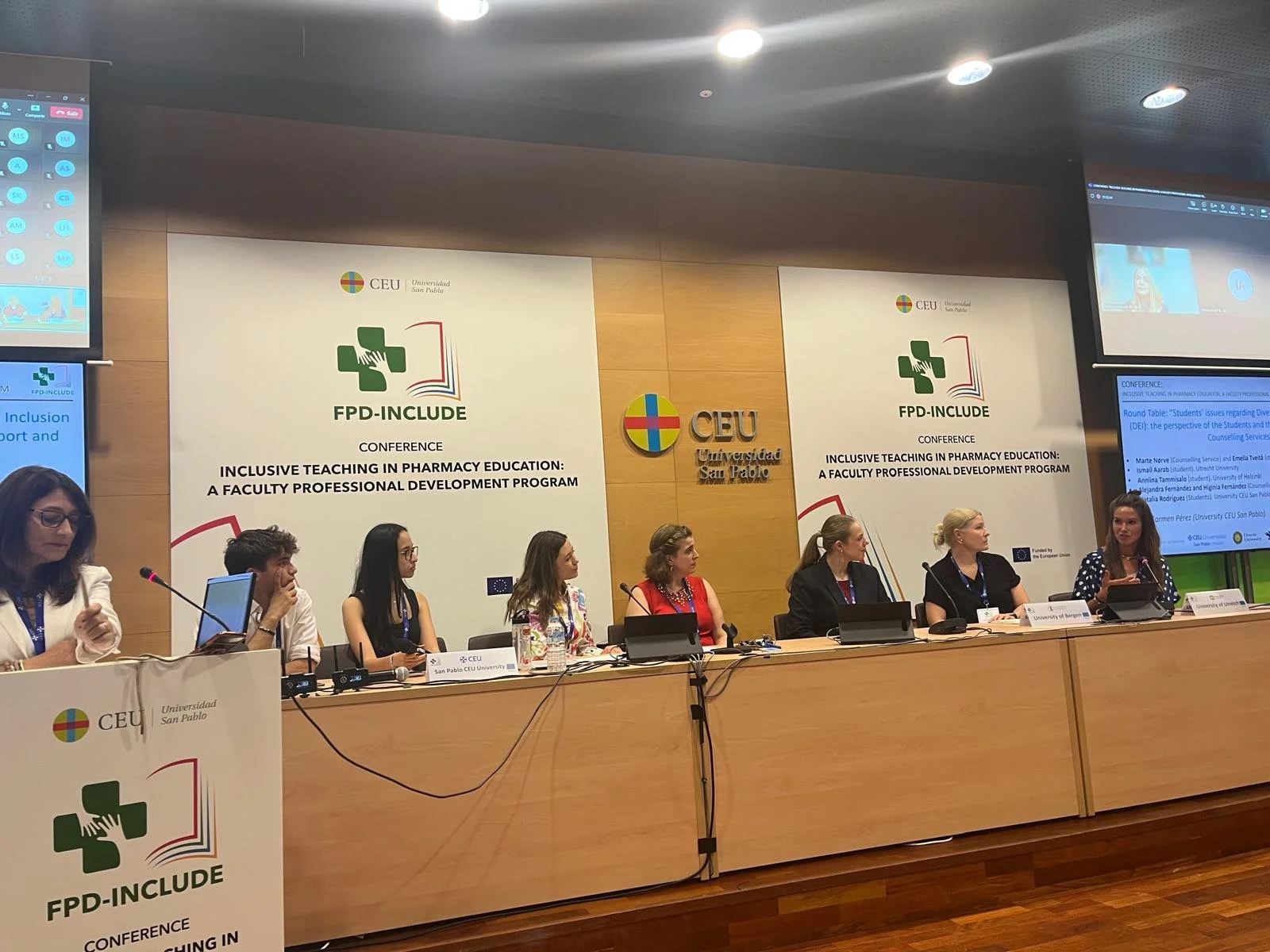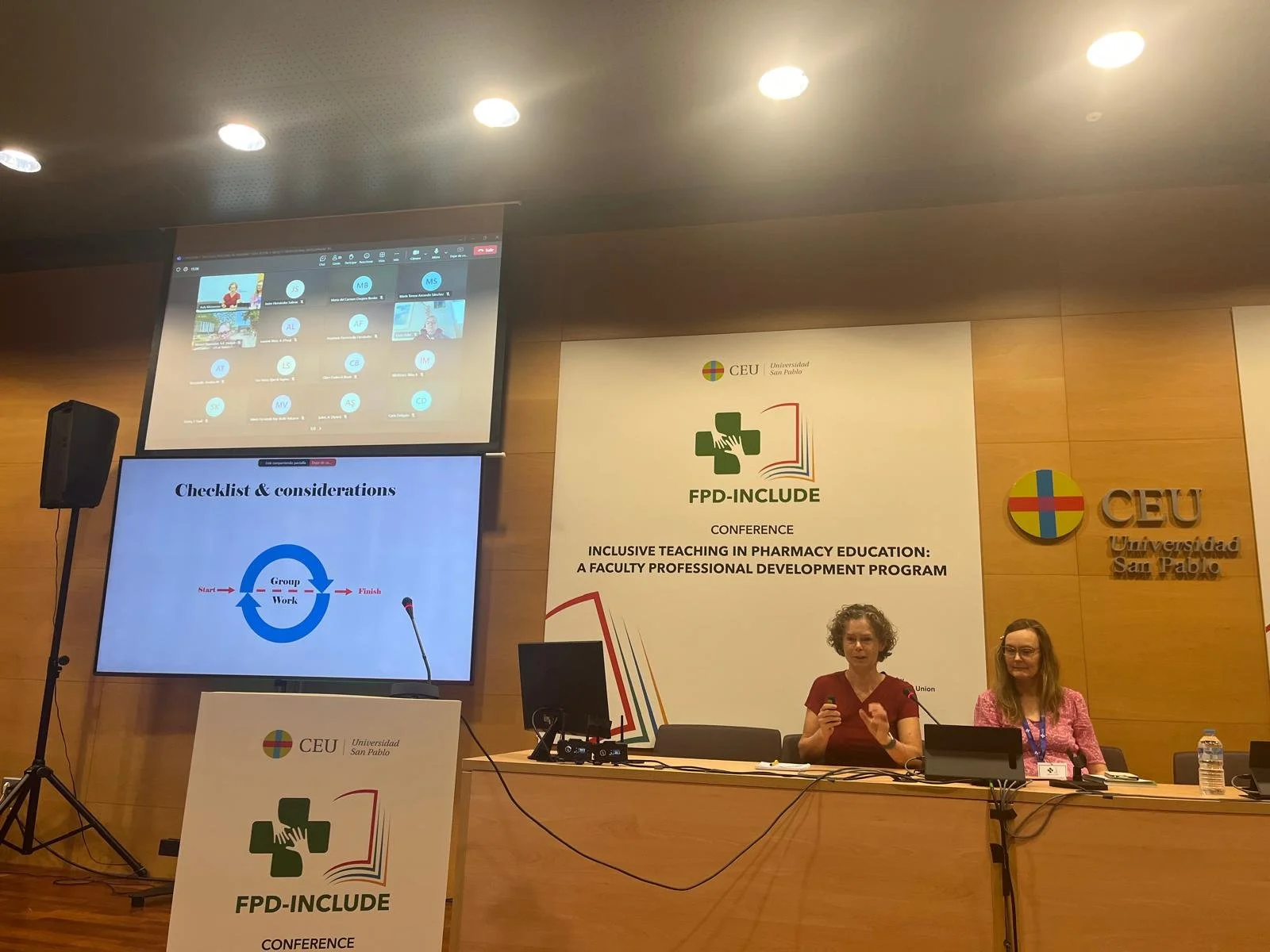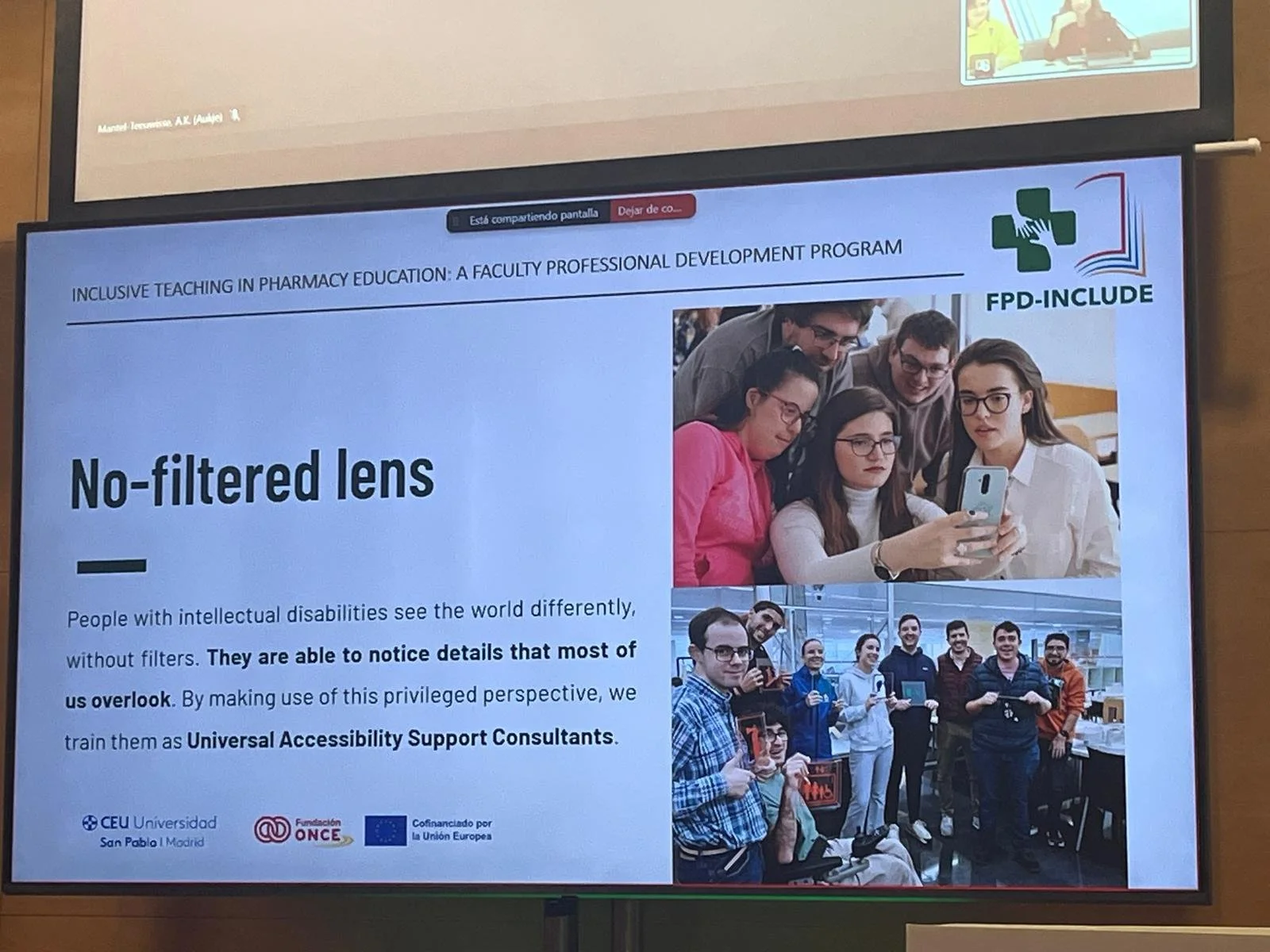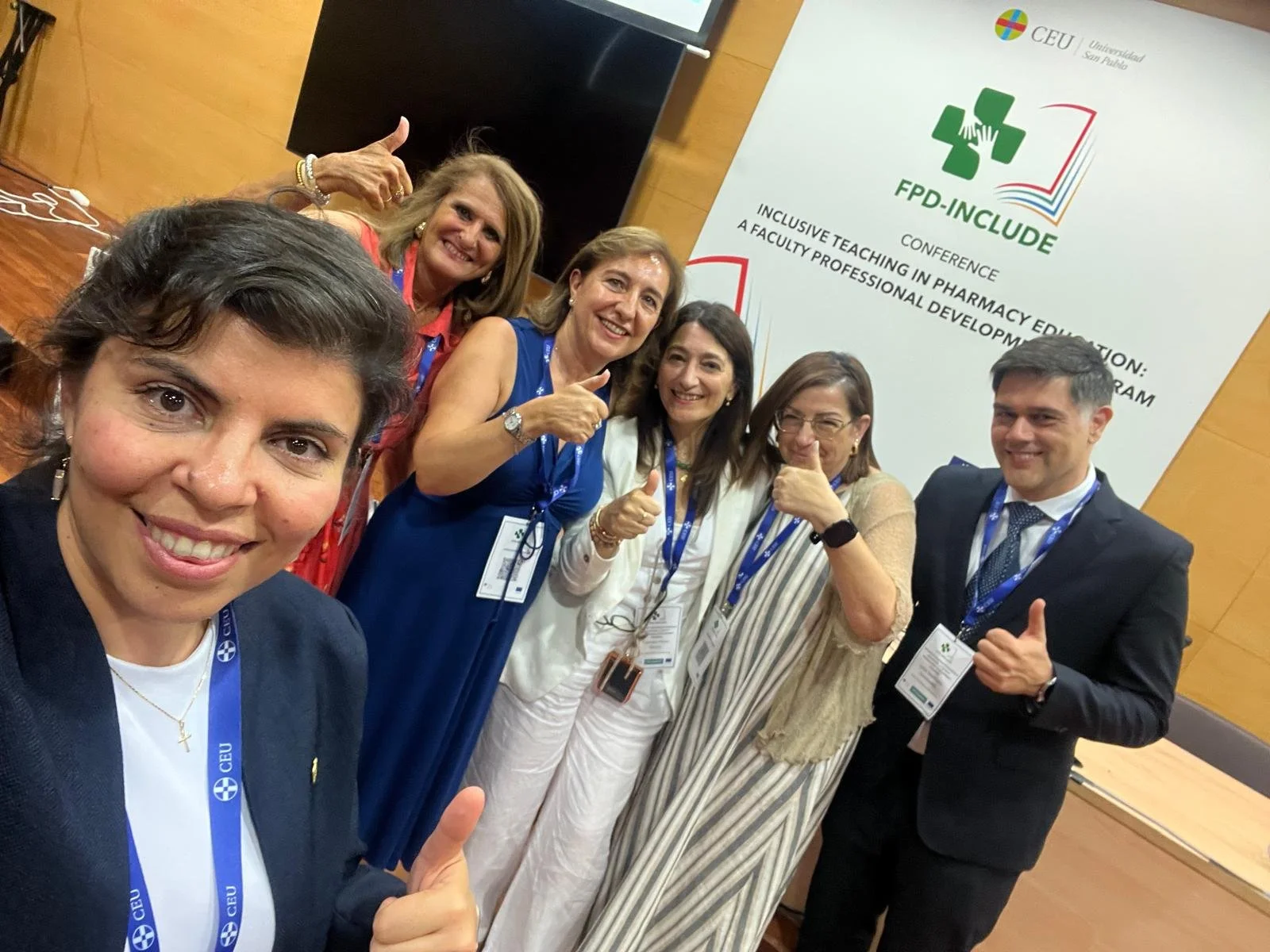Inclusive Teaching in Pharmacy Education: First COIL Conference
Over 120 participants joined the FPD-Include COIL Conference at CEU Madrid—onsite and online—to advance inclusive pharmacy education together.
This spring, 48 participants from six institutions in four countries (Norway, Spain, The Netherlands and Finland) joined the first Inclusive Teaching in Pharmacy Education COIL course. The course ended with a hybrid conference at CEU San Pablo in Madrid, where more than 120 people took part onsite and online.
Over the course, participants worked in international groups on five themes:
Facilitating collaboration within diverse student groups
Intercultural competence and communication
Inclusive assessment and feedback
Inclusive teaching in STEM subjects
Building trust and repairing relationships in the classroom
Alongside their group work, participants joined lectures on intercultural communication, equity and accessibility, and the concepts of belonging and mattering. The result was a conference full of practical insights, collaborative energy, and innovative teaching ideas—many of which will soon be shared as open educational resources.
Concluding reflections from the conference
We began with reflections on ethical and relational pedagogies. Karen Gravett invited us to see assessment as an enjoyable and relational practice, and to notice the micro-practices that can lead to big change. She urged us to see teaching itself as an ethical practice, a commitment to just pedagogies.
“Relational pedagogies understood in this way can foster more caring and ethical ways of working with students by encouraging us to notice our institutions and learning spaces anew.”
The COIL participants then shared their concrete strategies and activities, including role-playing with EDIA-related cases, a checklist for forming groups, and a tool to monitor group dynamics and adjust as needed. We discussed inclusive assessment for neurodivergent students and explored a toolkit to help teachers better understand student needs and challenges, including a cultural differences diagnostic tool. Within STEM contexts, we were reminded to see failure as a valuable learning method—creating safe spaces for learning and fostering resilience.
Another group addressed repairing relationships and handling conflict in the classroom, asking why trust matters. They introduced the ABI model—Ability, Benevolence, and Integrity—reminding us that teachers must show real concern for students and be transparent in their actions. Leadership, they noted, means including all voices, making EDI a strategic priority, and empowering leaders to be exceptional.
The roundtable discussion emphasized that inclusiveness requires the entire learning ecosystem: administration, students, teachers, student support, and the institution itself. Together, we can strengthen the learning environment, improve student well-being, and shape more inclusive pharmacy services.
We also witnessed an inspiring collaboration between architecture and pharmacy education. At CEU San Pablo, the International Program for Universal Accessibility Evaluation in Pharmacies brings together students with intellectual disabilities, pharmacy students, and teachers from both architecture and pharmacy. Together they evaluated the accessibility of community pharmacies in Madrid—looking at entrances, signage, furniture layout, counters, and communication for people with hearing or visual impairments. Supported by the Colegio Oficial de Farmacéuticos de Madrid, this initiative not only raised awareness among future pharmacists about universal design but also provided pharmacies with detailed recommendations to improve accessibility.
“Environments can be inclusive or exclusive, and universal design principles can help create more accessible community pharmacy services. ”
A warm thank you to CEU San Pablo Madrid
Beyond the academic program, the CEU team created unforgettable moments that brought us closer together as colleagues and friends. From a guided campus tour to an amazing conference dinner, a night bus ride through Madrid, and a guided city tour the following day, they gave us the chance to experience both the university and the city with fresh eyes. These shared experiences added warmth, connection, and joy to the conference, making our time in Madrid truly special.
Next steps – FPD-Include Open Inclusive Teaching Toolkit
All resources developed during the COIL will soon be openly available in five languages as the FPD-Include Teaching Toolkit.
Interested to get involved? If you would like to:
Join the next edition of the COIL course, or
Access the FPD-Include Teaching Toolkit once it is published
Get in touch with us. Let’s keep the conversation going..
